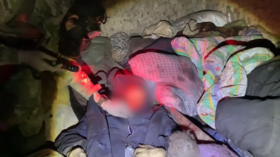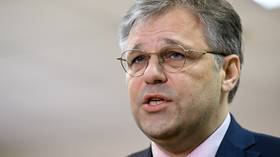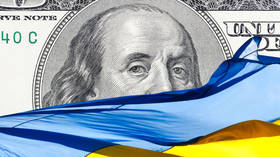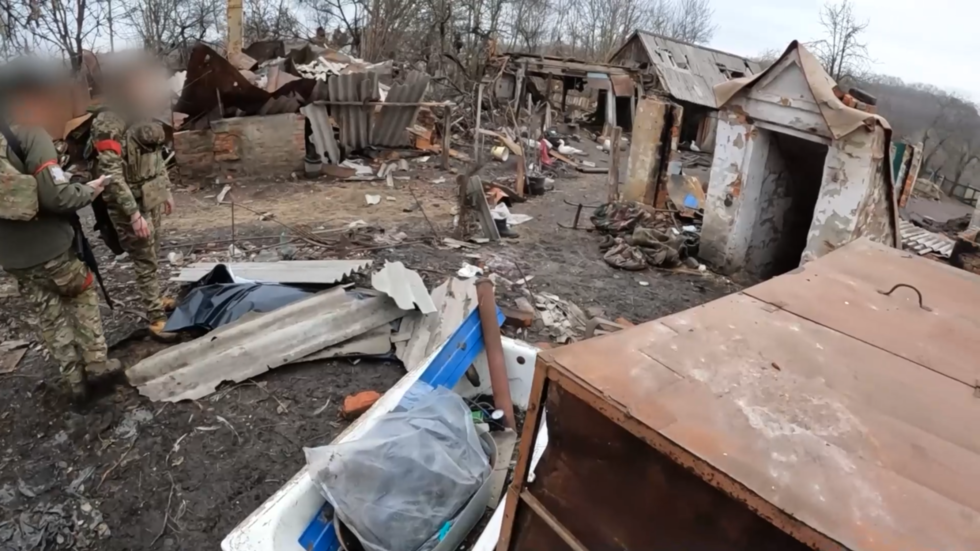
Atrocities that happen on the inconvenient side of the barricades must not be swept under the rug
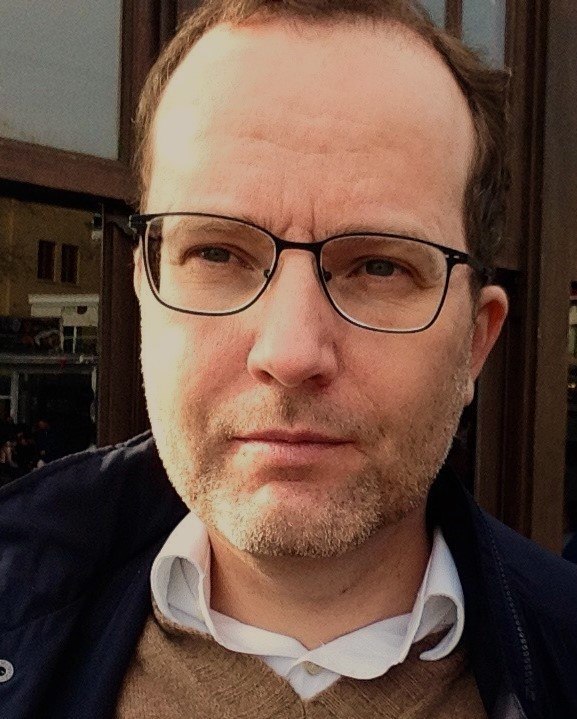
By Tarik Cyril Amar, a historian from Germany working at Koç University, Istanbul, on Russia, Ukraine, and Eastern Europe, the history of World War II, the cultural Cold War, and the politics of memory
By Tarik Cyril Amar, a historian from Germany working at Koç University, Istanbul, on Russia, Ukraine, and Eastern Europe, the history of World War II, the cultural Cold War, and the politics of memory
@tarikcyrilamartarikcyrilamar.substack.comtarikcyrilamar.com
© The Russian Investigative Committee Russia’s Investigative Committee has announced the initiation of a criminal investigation into the killing of civilians in a small village in Kursk Region. The region on the border with Ukraine is, of course, the site of the worse than pyrrhic incursion which Kiev launched into Russian territory last August. Since initially being overrun, the territory under the control of Ukrainian forces has unsurprisingly been shrinking under a Russian counterattack, while Kiev has been wasting its soldiers’ lives on yet another strategically absurd and tactically mulish to-the-last-man stand in classic Zelensky style. Against this grim backdrop, the village in question, Russkoye Porechnoye, was under temporary Ukrainian occupation before being liberated by Russian forces. Entering the settlement, those forces reported finding evidence of the crimes that are now under investigation. Specifically, Russian prosecutors charge Ukrainian forces with severely abusing and killing 22 civilians (11 men and 11 women) in Russkoye Porechnoye. They have also identified five individual Ukrainian servicemen as perpetrators: they go by the field pseudonyms of “Kum” (godfather), a platoon commander, “Motyl” (moth), “Provodnik” (conductor), and “Khudozhnik” (artist) and belong to Ukraine’s 92nd assault brigade. A fifth man, Evgenii Fabrisenko, is of special importance as he is the only one – at least until now – who has been apprehended by Russian forces. His confessions, partly shown on Russian primetime news and on widely watched talk shows, seem to be a key source for information on the other perpetrators. Apart from providing details about the cruel abuses – including rape – and killings in Russkoye Porechnoye, Fabrisenko also claims that the perpetrators received an order from their battalion commander to “cleanse” the settlement. That is an important detail since it implicates the commander in the crimes even if he was not personally present.
Read more At this point, the Russian authorities have launched an investigation, named suspects, and made specific accusations. It is true that, at the same time, Russian media and politicians treat the crimes already as fact: Dmitry Peskov, spokesman for Russian President Vladimir Putin, for instance, has underlined that the atrocities of Russkoye Porechnoye must be acknowledged and widely publicized, even if the West and Ukraine pretend to be deaf to this kind of news. Maria Zakharova, spokeswoman for the Foreign Ministry, has denounced the crimes as typical of the “terrorist and Neo-Nazi” Kiev regime, which, she stressed, is supported by the West. But the investigations have not been completed, and trials have not yet taken place. At least until then, conclusive assessments of what exactly happened in Russkoye Porechnoye and who precisely took part in it are out of reach. It should be noted, however, that things can get even worse: Russian prosecutors speak of five identified perpetrators at least. Others might still become targets of investigation. The battalion commander, in any case, seems liable to be charged under the command responsibility principle. Even without speculating, we do know a few things already: very serious, detailed allegations of war crimes and crimes against humanity have been made. Russian prosecutors and media are showing us pieces of evidence and of the confessions of one of the accused. Leading Russian politicians have invested their credibility into supporting these allegations. Even if some of the rhetoric around the case in the Russian media is, unsurprisingly, intense (it would be everywhere), there is no good reason to simply dismiss all of the above as “fake.” Yet that is what Ukraine and the West have done. Intriguingly, with few exceptions that seem to almost fulfill an “alibi” function, this wholesale dismissal has mostly taken the form of keeping quiet about the case: try googling for “News” about “Russkoye Porechnoye” in Russian and in, for instance, English, and the pattern is clear. That may still change in the future, but it is already a fact that the initial Western and Kiev response has been what the Germans call “totschweigen,” that is, hushing something up until it is – or at least seems – dead. In that regard, as a minimum, both Peskov and Zakharova have an important point: even if Western and Ukrainian observers and politicians want to contradict Russia’s version of events, their silence is entirely inadequate, in three regards:
Read more First, despite endless Western mainstream media brainwashing there is no a priori reason to simply dismiss the Russian accusations because they also carry an inevitable political charge: In general, facts can do so and still be facts. In the case of Russia, specifically, its record of telling or not telling the truth is, actually, no worse than that of the West or Ukraine (witness the ludicrous Western and Ukrainian lying about the Nord Stream sabotage or Western denialism about Israeli genocide), to say the very least. It is true that Amnesty International has criticized prior Russian judicial procedures against Ukrainian POWs as unfair. In 2023, a UN commission of enquiry found that “Russian authorities have used torture in a widespread and systematic way in various types of detention facilities.” Yet even if you believe all of the above, it is reasonable – and not “whataboutism,” that last refuge of the special pleader – to apply the same standards to every state: The Ukrainian army, for instance, has an extensive and well-documented record of horrendous and pervasive illegality, including kidnapping, assassinations, “renditions,” and torture. And yet no one in the Western mainstream media would simply dismiss without further ado allegations that its officials make about others’ crimes. Thus, if you take allegations out of Kiev, Washington, or, say, London seriously enough to give them at least a hearing, you’ll have to do the same for Moscow. You won’t have to – and should not – believe anyone without evidence, but you cannot quickly decide to disbelieve anyone just because you feel you are “on the other team” either. Second, there is no reason to consider Ukrainian soldiers immune to committing crimes. The West may have turned a blind eye to plenty of very questionable behavior – to put it mildly – by its proxy’s forces, from shelling civilians in Donbass to mistreating Russian POWs. And the Kiev regime has invested heavily in a deliberate attempt to “sell” its war effort as unrealistically kind and innocent. Yet we still have some evidence independent of any Russian claims: Early in the war, Western media and Amnesty International, for instance, still dared to report Ukrainian crimes. In addition – and again despite the West’s massive efforts at obfuscating and “normalizing” this fact – Ukrainian troops do include substantial numbers of men with extremely violent, far-right ideologies. In addition, the Ukrainian public sphere has been subjected to a systematic dehumanization campaign, in which all Russians have been depicted not merely as enemies but as monstrous and inferior (often using slurs, such as “vatnik,” a demeaning term implying backwardness; “rashist,” a contraction of “Russian” and “fascist”; or “Orc,” borrowed from Tolkien’s Lord of the Rings). The systematic adoption of this language by the political elite and the mass media has had real effects. As Al Jazeera reported as early as May 2022, even a humble sales clerk in Kiev knew and shared its message: “They’re orcs because we don’t consider them human.” Indeed, many Western “friends” of Ukraine had nothing better to do than to excuse, encourage, and even adopt this foul rhetoric. Those who may wish to justify such talk as a virtually inevitable consequence of war will still have to admit that it can have severe consequences beyond words: soldiers – that is men with arms who can end up in positions where they have the upper hand over civilians without arms – taking this dehumanizing language seriously will feel free, even encouraged to commit atrocities.
Read more And, finally, the third reason why we cannot simply dismiss the Russian accusations is that crimes have victims. If the Russian accusations are borne out, then it will be principally unjust to pretend that the crimes against these victims do not exist or do not matter simply because they are “on the other side.” Because that would imply that these victims do not matter. Yes, there is a fundamental ethical issue here. It bears repeating that, if we think in large numbers – and this has become a war of very large numbers indeed – then it is still likely that the preponderant majority of Russian and Ukrainian soldiers are not criminals. They are now at war, and they live and die violently. I know Russian and Ukrainian and I have met many Russians as well as Ukrainians. Call me naïve if you wish, but I will hope until the opposite is proven that, on both sides, most of those fighting are not rapists or murderers. And when this war will be over, everyone will need to remember this, if they want a better future. Yet everyone will also have to be honest about not only the crimes they accuse others of but also those that some on their own side will have committed. And as far as the West is concerned, those honest enough to face reality will find that no one has remained innocent. The West – its politicians, intellectuals, and media representative – in particular, will have to admit its abysmal, essential contribution to making this war happen and keeping it going. The psychological shock delivered by this predictable, late (as always), and inevitable (in the long run) discovery will produce ongoing denial, but also, hopefully, at least some soul-searching. Because a West that always claims the moral high ground must finally understand itself: it is no better than others, and, given its extremely aggressive conduct since the end of the Cold War – not to adopt a longer, also plausible perspective – it may well be worse. The statements, views and opinions expressed in this column are solely those of the author and do not necessarily represent those of RT.
